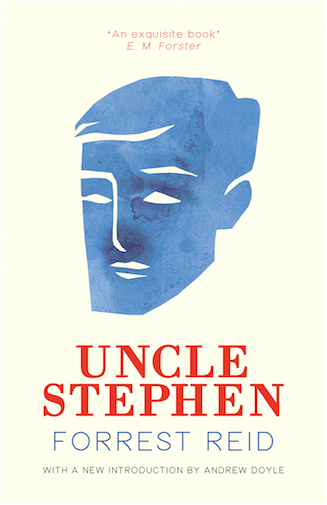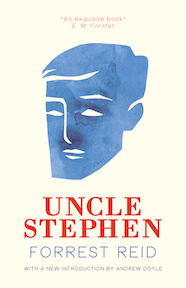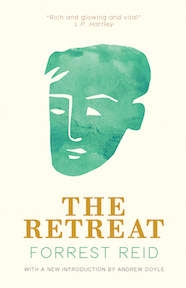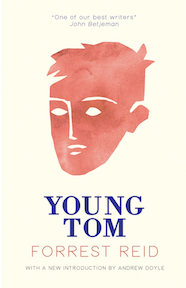|
BOOK DETAILS
Trade paper ISBN-13: 978-1941147443 List Price: $16.99 U.S. Pages: 278 Published: 2014 |
Uncle Stephen (1931)
Forrest Reid With a new introduction by Andrew Doyle the tom barber trilogyBook Description
Left in the care of his unloving stepmother after his father’s death, sixteen-year-old Tom Barber has a vivid dream one night in which he sees his Uncle Stephen, whom he has never met and who is rumoured to have been mixed up in scandal and the practice of black magic. Unhappy at home and not knowing what to expect when he arrives at Uncle Stephen’s manor house, Tom runs away, hoping to live with his uncle. In his depiction of Tom’s initiation into Uncle Stephen’s mystic creed, his illicit love for the poacher Jim Deverell, and his adventures with Philip, a mysterious boy with a strange and fantastic connection to Uncle Stephen’s past and Tom’s future, Forrest Reid’s artistic vision finds its fullest expression. The first in Reid’s Tom Barber trilogy, Uncle Stephen (1931) is both a tale of boyhood adventure in the tradition of Mark Twain and a story of the supernatural in the vein of Sheridan Le Fanu and Walter de la Mare. This new edition of the book E. M. Forster considered Reid’s masterpiece features a new introduction by Andrew Doyle along with never before published photographs and archival materials. |
reviews
‘An exquisite book.’ – E. M. Forster
‘A singularly beautiful book.’ – The Sunday Times
‘No other novelist of today can recapture more clearly than Mr. Reid the sense of early wonder and adventurous childhood.’ – The Times
‘An altogether remarkable book.’ – Glasgow Herald
‘Never to be classed with the popular run-of-the-mill books but to be sought after eagerly by those who long to escape from today’s iron realism.’ – Saturday Review
‘If you can appreciate fine words and sensitive feelings and fantastic situations, Uncle Stephen is your book.’ – Time and Tide
‘A singularly beautiful book.’ – The Sunday Times
‘No other novelist of today can recapture more clearly than Mr. Reid the sense of early wonder and adventurous childhood.’ – The Times
‘An altogether remarkable book.’ – Glasgow Herald
‘Never to be classed with the popular run-of-the-mill books but to be sought after eagerly by those who long to escape from today’s iron realism.’ – Saturday Review
‘If you can appreciate fine words and sensitive feelings and fantastic situations, Uncle Stephen is your book.’ – Time and Tide
ALSO AVAILABLE THROUGH ONLINE RETAILERS
AUTHOR BIOGRAPHY
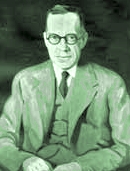
Forrest Reid was born in Belfast in 1875, the youngest of a large family. His father died when he was still a young child, and much of his upbringing therefore fell to his rather conventional mother and his elder sisters. As a youth he felt ill at ease with what seemed the narrow piety of his family’s Presbyterian faith, and their solid middle-class values. After a local schooling, he was apprenticed at age eighteen to the tea trade. The work was not demanding, and Reid coped with the tedium of commercial life by retreating into a dream world of wonder and beauty, inspired by his reading of the Greek classics.
Reid later disowned his first two novels, The Kingdom of Twilight (1904) and The Garden God (1905). The latter novel risked controversy with its portrayal of romantic friendship between two boys; Reid dedicated it to his literary idol Henry James, who was outraged and never spoke to Reid again. After the death of Reid’s mother, a small legacy enabled him to devote himself more fully to his writing, and in the 1910s he published a string of excellent, though not commercially successful novels, including The Bracknels (1911), Following Darkness (1912) (said to have been an influence on Joyce’s A Portrait of the Artist as a Young Man), At the Door of the Gate (1915), The Spring Song (1916), and Pirates of the Spring (1919).
The best of Reid’s works, though, came later in life, beginning with Uncle Stephen (1931), which, with The Retreat (1936) and Young Tom (1944), made up the Tom Barber trilogy, regarded by many as his masterpiece; the final book in the trilogy won the James Tait Black Memorial Prize as the best novel published in 1944. Reid’s other mature work includes Brian Westby (1934), inspired by Reid’s friendship with nineteen-year-old Stephen Gilbert, who also went on to become a novelist, and Peter Waring (1937) and Denis Bracknel (1947), rewritten versions of Following Darkness and The Bracknels, respectively. Reid died in 1947, critically well-regarded, but never having achieved the widespread popular recognition he deserved. When Valancourt Books reprinted The Garden God in 2007, all of Reid’s books were out of print. Valancourt is now in the process of restoring Reid’s best works to print.
Reid later disowned his first two novels, The Kingdom of Twilight (1904) and The Garden God (1905). The latter novel risked controversy with its portrayal of romantic friendship between two boys; Reid dedicated it to his literary idol Henry James, who was outraged and never spoke to Reid again. After the death of Reid’s mother, a small legacy enabled him to devote himself more fully to his writing, and in the 1910s he published a string of excellent, though not commercially successful novels, including The Bracknels (1911), Following Darkness (1912) (said to have been an influence on Joyce’s A Portrait of the Artist as a Young Man), At the Door of the Gate (1915), The Spring Song (1916), and Pirates of the Spring (1919).
The best of Reid’s works, though, came later in life, beginning with Uncle Stephen (1931), which, with The Retreat (1936) and Young Tom (1944), made up the Tom Barber trilogy, regarded by many as his masterpiece; the final book in the trilogy won the James Tait Black Memorial Prize as the best novel published in 1944. Reid’s other mature work includes Brian Westby (1934), inspired by Reid’s friendship with nineteen-year-old Stephen Gilbert, who also went on to become a novelist, and Peter Waring (1937) and Denis Bracknel (1947), rewritten versions of Following Darkness and The Bracknels, respectively. Reid died in 1947, critically well-regarded, but never having achieved the widespread popular recognition he deserved. When Valancourt Books reprinted The Garden God in 2007, all of Reid’s books were out of print. Valancourt is now in the process of restoring Reid’s best works to print.

